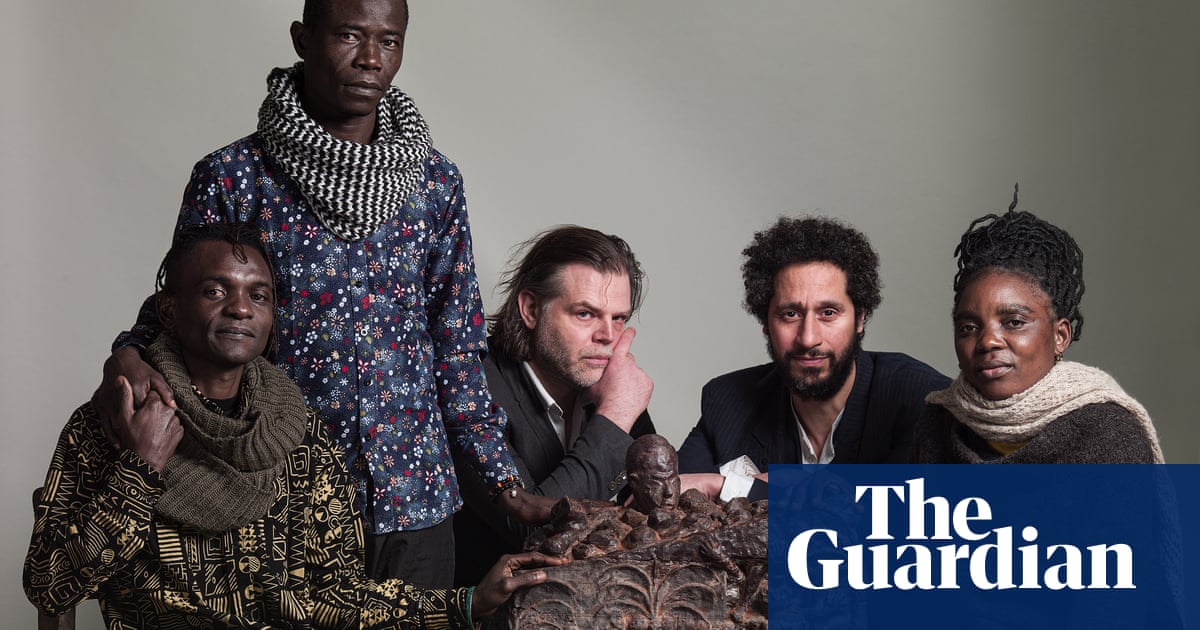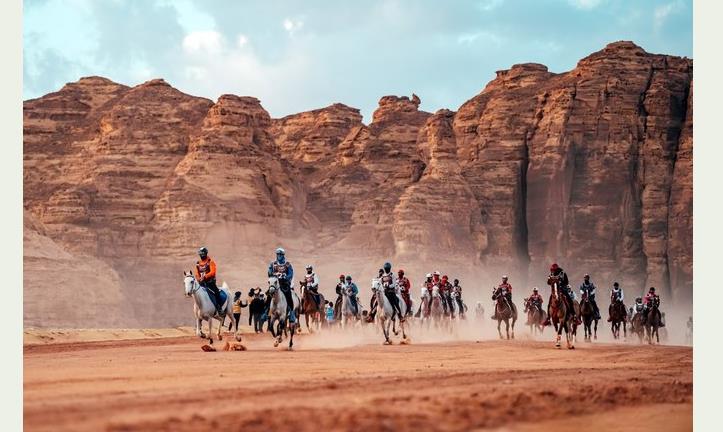
Gloom lifted after last year’s holy month fell during strict anti-coronavirus measures
Faithful revel in return to communal worship as restrictions eased across Britain
LONDON: British Muslims have expressed their joy and relief at being able to worship communally in mosques after lockdown restrictions eased in time for Ramadan.
Last year, the holy month came as the UK and many parts of the world shut down amid the first wave of the coronavirus pandemic.
Muslims were forced to stay at home during Ramadan, a month usually characterized by worshipping with others and community gatherings. Many felt isolated and disconnected from their communities and routines as thousands of people died from the virus around them.
Striking images of the Grand Mosque in Makkah bereft of pilgrims and worshippers during Ramadan 2020 sent shockwaves through Muslim communities across the world.
“The most prominent image that I can think of (during the pandemic) is seeing the completely empty Grand Mosque in Makkah, an image that resonated with Muslims around the whole world,” the CEO of the Council of British Hajjis, Rashid Mogradia, said. “I never imagined that would happen during my lifetime or ever for that matter. It was quite upsetting.
“We took life and simple things like going to the mosque for granted.”
Although the pandemic is not over and the UK has lost 127,000 people to COVID-19 since it started, Ramadan 2021 is very different to last year.
Several vaccines against the virus have been developed in record time and more than ten million people have been inoculated in the UK so far, providing some protection and reassurance to society’s most vulnerable.
Lockdown restrictions in the UK eased on March 29, two weeks before the start of Ramadan. Unlike last year, communal prayer in mosques is allowed as places of worship were not required to close during the lockdown announced in January. However, strict precautionary measures have been in place to curb the spread of the virus.
Social distancing is being enforced, face masks must be worn, individual prayer mats and shoe bags used, and people are encouraged to perform ablution at home.
Only dates and bottled water are provided for iftar instead of full meals, and the length of the taraweeh prayer has been shortened.
“Ramadan 2021 is massively different to Ramadan 2020. There is an appreciation of the fact that you can enter mosques, break your fast and pray taraweeh,” Mogradia said.
“The mosques seem to look fuller than usual. That’s probably down to the fact that everyone is bringing their prayer mats and the social distancing. I am also seeing a lot more new faces at my local mosque. Those who didn’t come to the mosque as often are now attending, and that might stem from an appreciation for being able to perform prayers in the mosque. That’s really nice,” he said.
People in the UK are still not able to mix indoors with people they do not live with or who are not in their support bubble. This means that extended family iftar gatherings, a celebrated Ramadan tradition, are off the table.
However, Muslims are able to worship as a community during Ramadan 2021 and this has returned a partial sense of normality to the holy month. It has caused a surge in optimism and people feel less isolated and lonely because they are able to pray together and break their fasts, albeit briefly, with each other in the mosque.
“This time last year we were all on lockdown and we had to worship at home. Ramadan is about communal worship: Iftars and performing prayers and taraweeh together — that is back. We are able to move around and exchange Ramadan dishes with the neighbors,” Mogradia said.
“That whole community spirit is coming back and we actually feel as though Ramadan is here. Last year, we were confined to our houses. We are grateful that we have been given this opportunity. It also makes you reflect on how many people have passed away. It’s a great blessing to be able to partake in Ramadan again,” he added.
The secretary of Waltham Forest Council of Mosques (WFCOM), Said Looch, said that mosques have been working tirelessly to ensure the safety of their congregations and that COVID-19 precautionary measures are in place.
“From the mosques’ perspective, there has been a lot more preparation compared to previous Ramadans because of the precautionary measures that need to be put in place to ensure that worshippers are safe and following guidelines and protocol set by the government. Mosques have been working really hard to accommodate their local communities and we still want people to enjoy coming to their local places of worship,” Looch said.
He said that although communal prayer is back this Ramadan, sharing big iftar meals in the traditional sense is what a lot of people are still missing.
“Normally for iftar, huge mats are laid out and people bring lots of food to the mosque and everyone sits together. Sometimes you sit with your friends and at other times you share a meal with a complete stranger and become friends,” Looch said.
He said that keeping a one-meter gap between worshippers has reduced capacity by 60-70 percent in some mosques this Ramadan, and this has led to a change in ambience.
“Normally, when we pray in congregation, there is a real sense of brotherhood because you stand shoulder to shoulder with the next person. Now, there is a lot of space between people and so there is a different atmosphere,” Looch explained.
“The mosques are open but they are not fully functioning,” he added.
Looch said that despite all the restrictions to protect worshippers, mosques are trying to make people feel comfortable.
“We hope worshippers will get a spiritual upliftment from the mosque and that they feel like they have benefitted and want to come back again.
He added that a few Muslims had told him they had been more productive spiritually during Ramadan 2020 because they could worship at their own pace.
The media and communications manager for East London Mosque & London Muslim Center, Khizar Mohammad, said that although London’s busiest mosque is open this Ramadan, taraweeh prayers will be markedly different.
“The prayer will be shorter in duration, and people will be allowed to enter the mosque 20 minutes before and will be required to leave as soon as it is over. Volunteers encourage people not to socialize outside the mosque as they usually would,” he said.
Mohammad said that the popular mosque, which sees some 7,000 worshippers descend on it from around London on the first night of Ramadan for taraweeh prayers, will only be able to accommodate about 1,600 people due to social distancing measures this year.











